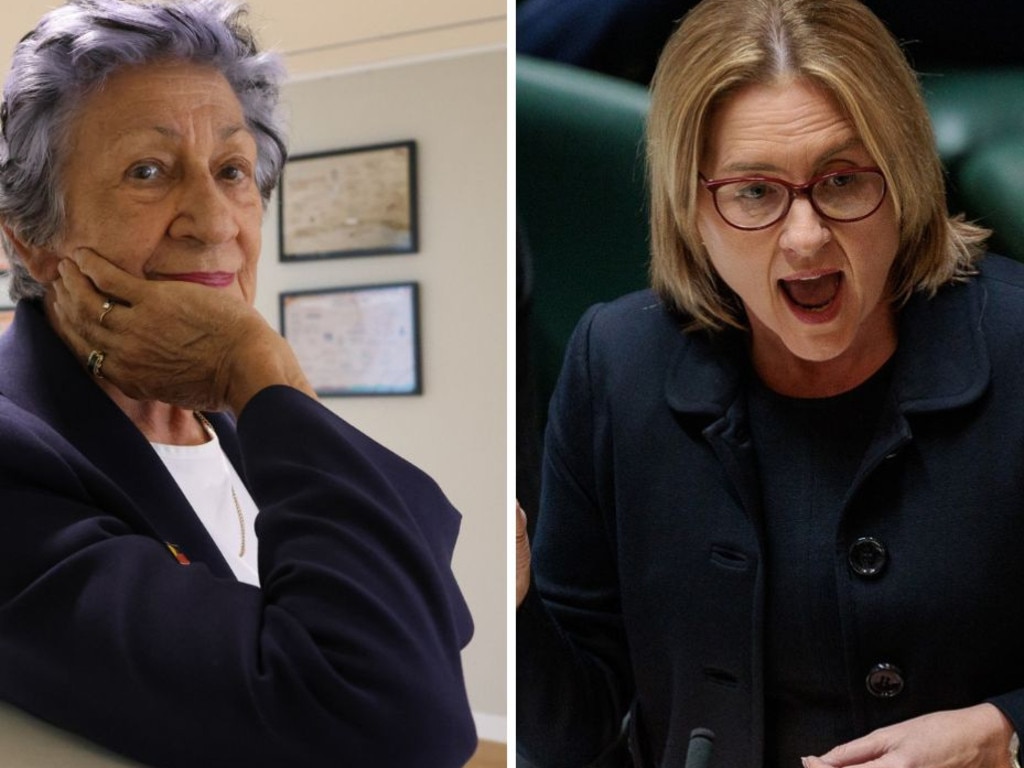
Yoorrook Justice Commission’s vice-chair Travis Lovett recently walked 500km from Portland in western Victoria to the state’s Parliament House to deliver the final report of the nation’s first formal truth-telling process. Greeted by an enthusiastic crowd on the Spring Street steps, Lovett declared that “the silence ends here. The time of not knowing – of choosing not to know – is over.”
Yoorrook means “truth” in the Wemba Wemba language of northwest Victoria. The four-year inquiry – the longest with the power of a royal commission in Victoria’s history – collected thousands of witnesses’ statements and prompted 16 ministerial apologies. The final report, “Truth Be Told”, tabled this week in parliament, purports to tell the true story of colonisation, which it unequivocally describes as genocide.
Genocide is an accusation of the highest order. Beyond the immediate calls for compensation, it fundamentally shapes our grasp of history and the very freedom to discuss its interpretations.
Regardless, Premier Jacinta Allan has welcomed the report, describing the “truth-telling process” as “a historic opportunity to hear the stories of our past that have been buried”.
But if Allan and the commissioners believe Indigenous history is enveloped in a pall of silence, they need to get out more.
The national curriculum, its state versions, and every Australian university history department have become a cacophony, dedicated to topics they deem to have been shamefully muted.
Museums, state libraries and art galleries have made Indigenous experience a mainstay of their exhibitions, alongside other minorities and women. Just a few days ago, Melbourne University’s Potter Museum of Art launched an exhibition on Indigenous art that its curator proudly describes as consciously and deliberately “anti-colonial”.
At the same time, social progressive separatism – in the form of multiculturalism and Indigenous self-determination – has become unquestionable orthodoxy. To challenge them publicly means professional ostracism.
Reflecting that, the Australian curriculum, particularly within Civics and Citizenship and Humanities and Social Sciences, foregrounds the experiences of minorities, often over the common, shared experiences of most Australians. It is through the lens of identity politics, which relentlessly divides society into smaller and smaller groups, that students are encouraged to engage with contemporary political and social issues.
As these preoccupations have become dominant, Australia’s national student assessments (NAP-CC) have found an ongoing, now accelerating, collapse in civic knowledge and understanding, the critical foundations of democratic citizenship.
This knowledge collapse is particularly acute in key areas: constitutional structure, the head of state’s role, referendums, and pivotal historical events, especially those linked to British institutions.

Even in 2004, the baseline was pitifully low. Only 50 per cent of Year 6 students and 39 per cent of Year 10s met basic standards, as a majority struggled with “iconic knowledge” such as the history and significance of the Australian flag and of Anzac Day.
Since then, results have only worsened. Today, a mere 43 per cent of Year 6 students and 28 per cent of Year 10 pupils achieve proficiency.
Australia’s democratic identity has always been primarily attitudinal, locked into its cultural DNA, rather than grounded in a deeply felt recognition of the nation’s pivotal moments.
Unlike the US with its Declaration of Independence or France with its Republican fervour, our political milestones – convicts gaining equal justice in 1788, early self-government and franchise in the 1850s, or the direct vote for nationhood achieved in 1901 – have never made the Aussie heart beat faster.
But we at least tried to ensure students knew about them. Moreover, school civics celebrated British achievements – individual liberty, Magna Carta, the rule of law – as our own, which of course they were. Until the 1970s, the British thread in our school curriculum told a clear story: the hard-won fight for political rights through British history, making Australia’s own democratic strides instantly recognisable.
Since then, the emphasis has changed dramatically. What we now celebrate are the victories of the excluded – women’s suffrage, the 1967 referendum – and rightly so. But what about the central trunk of that story, the very foundation from which these branches of increasing inclusion extend? That trunk is gone.

As historian John Hirst, who chaired the “Discovering Democracy” civics program under the Howard government, bitterly noted, in losing our British heritage, our very sense of ourselves as Australian citizens has paradoxically weakened. We’ve shredded everything that united us and replaced it with anything that shoves us apart.
The result is not a culture of forgetting, where past sins are denied. It is a culture of ignorance. It derides at best, denies at worst, the past achievements that make it possible to recognise democratic deficiencies and seek to address them. We have, in other words, created a civic vacuum, too easily filled by climate activism, or anti-racism initiatives that can morph into poisonous anti-Semitism, all dominated by an ideology of protest and post-colonial revolt.
We are no longer Britons, of course. But must we also disown our genuine civic heritage? The political traditions and achievements stretching back to Magna Carta? Yes, there is a pall of silence: it hangs over our national culture. The authentic origins and deep roots of who we are remains not just unspoken but unspeakable.
Even after the decisive repudiation of the politics of difference in the voice referendum, and with figures such as Jacinta Nampinjimpa Price articulating a more concrete politics of equality than any politician since John Howard, we seem to remain bewitched.
Bewitched and bewildered, by the constant repetition of claims that bear no relation to the reality of history. Surely, after more than 50 years, it’s time to shatter the real silence and reclaim our full civic story.
Alex McDermott is a fellow at the Robert Menzies Institute.







